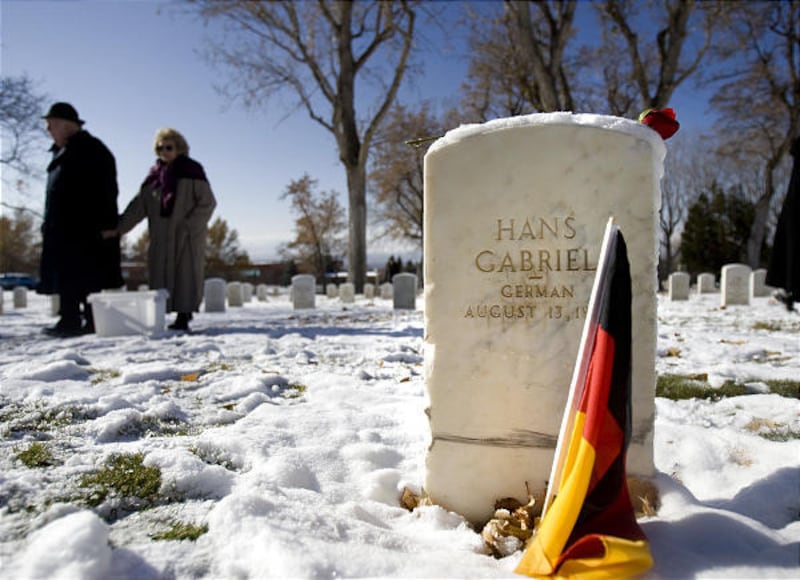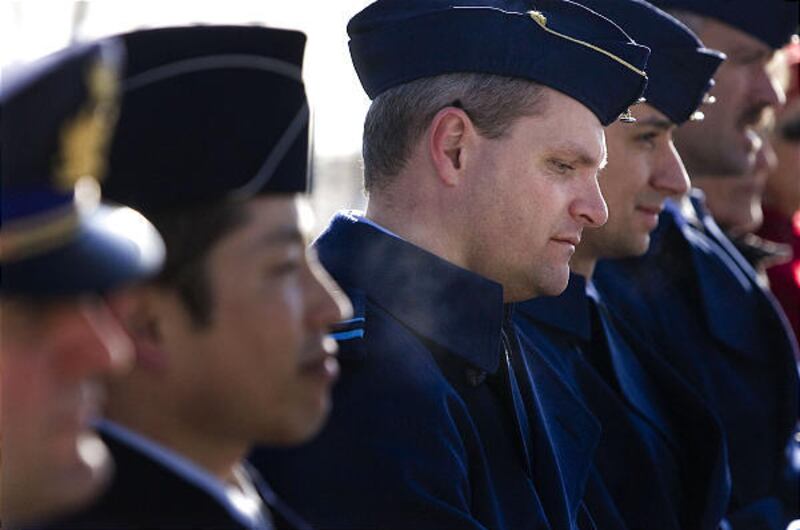They came to Utah as World War II prisoners of war, but they never made it home. Instead, they are buried at the tiny Fort Douglas Cemetery in Research Park — more than 20 Germans, a dozen Italians and a sole Japanese man, among the American soldiers.
Sunday, the sun reflected off the snow as Senior Master Sgt. Marko M. Exner, from Dusseldorf, Germany, moved between their graves, placing a small German flag and a red rose on some of the markers, the rose alone on others. After more than 60 years, they were not forgotten this "Volkstrauertag," the German equivalent of America's Memorial Day. After a ceremonial "walk among the graves," about 100 people gathered a half-block west, near a large monument marking the resting place of 21 German prisoners from an earlier time, World War I. There, the choir Harmonie sang in German as a wreath was placed.
Soldiers and citizens alike came to honor the dead, remember war's cost and pray for peace in a ceremony that has been held since the mid-'80s, according to Capt. Paul Roth, German Air Force liaison officer, who presided. He said not to pine for peace, but to craft it.
"We don't gather just because of tradition," he said, noting ongoing wars, terrorist attacks and the recent massacre at Fort Hood "all give us reason to commemorate and to mourn."
The 20th anniversary this month of the fall of the Berlin Wall triggered a worldwide celebration that was cut short by the shooting at Fort Hood, to which he referred several times.
It was a similar grim incident July 8, 1945, two months after Germany's surrender, that killed nine of the war prisoners whose graves Exner decorated. A private was to guard the prisoners, who were waiting to be sent home from a camp in Salina, but instead opened fire on the tents that housed them, killing nine and injuring 20. That story was whispered near the graves Sunday, but not mentioned in the ceremony.
Roth read three letters from World War I battlefields, including two from soldiers who knew they were dying and one who had experienced a Christmas Eve impromptu cease-fire and moment of friendship amid war's chaos. "It was so lovely, we were happy like little children," that soldier wrote.
Roth spoke at length of the German War Graves Commission and its peace work, what he called "efforts to turn findings from history into obligations for the future."
"We are all called upon to take action," Roth said, including educating children "based on dignity and human rights," regardless of differences in religion, race and cultural values, in order to raise "honest, value-oriented and tolerant human beings."
"We mourn," said Roth, "but we also promise to do everything we can so that peace will prevail."
e-mail: lois@desnews.com Twitter: Loisco



